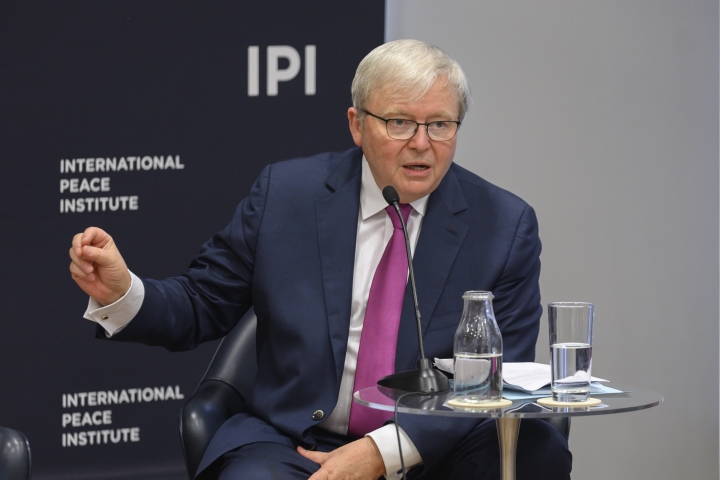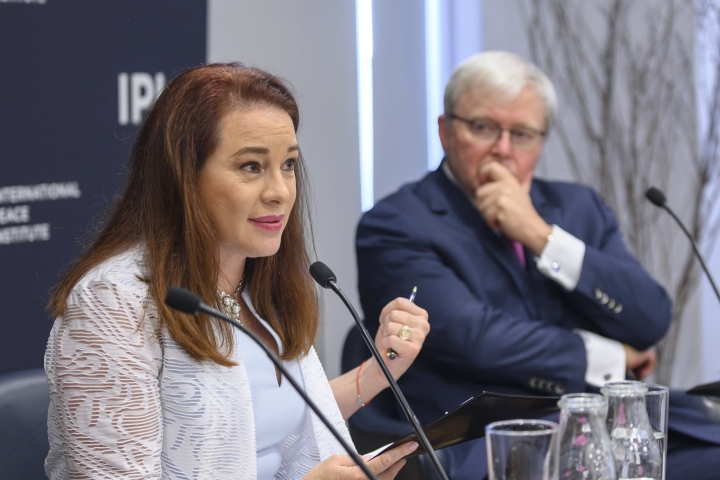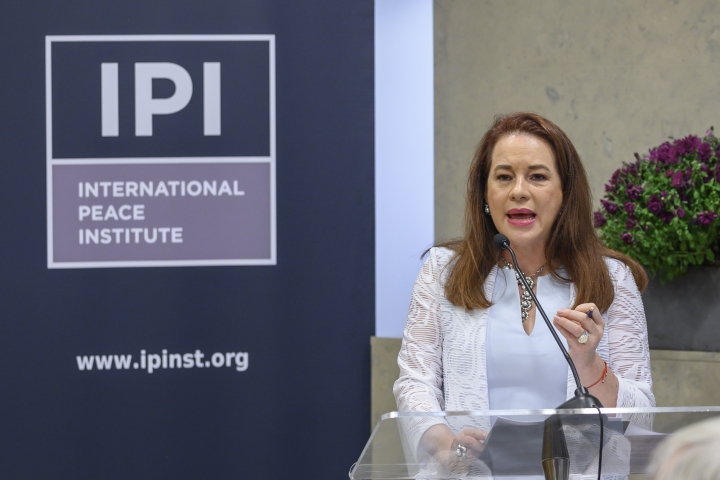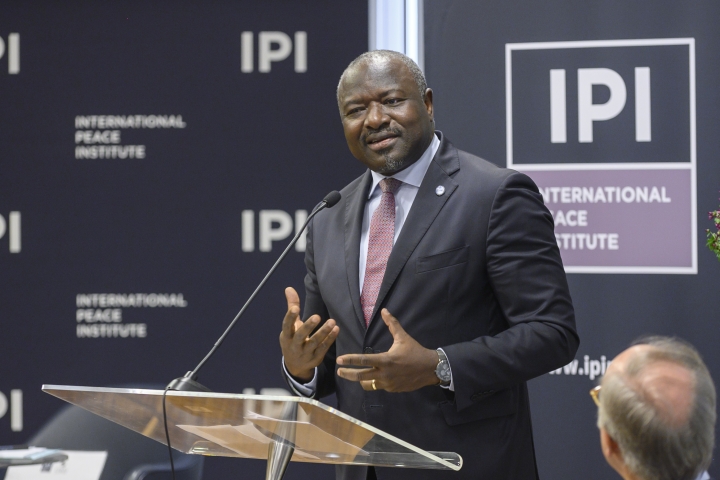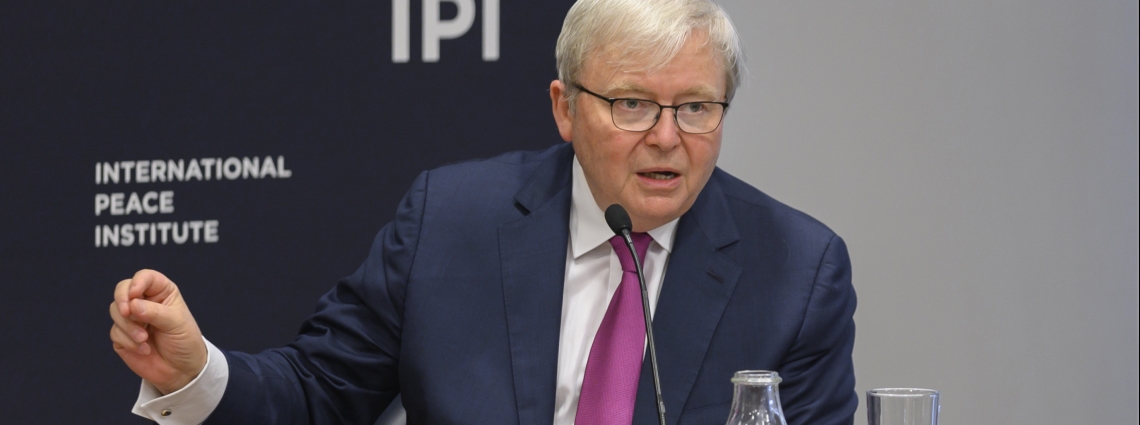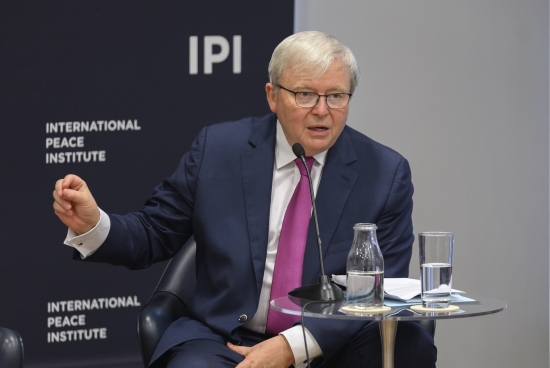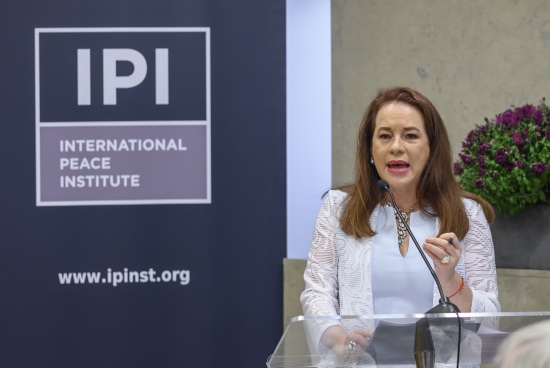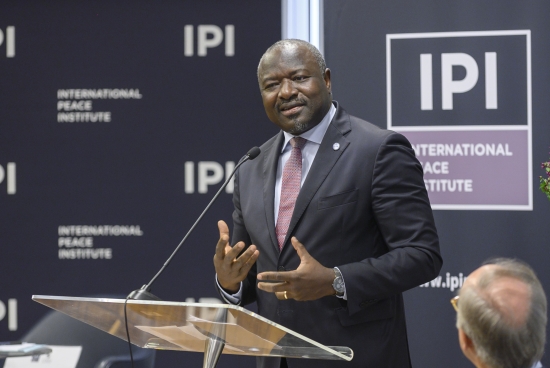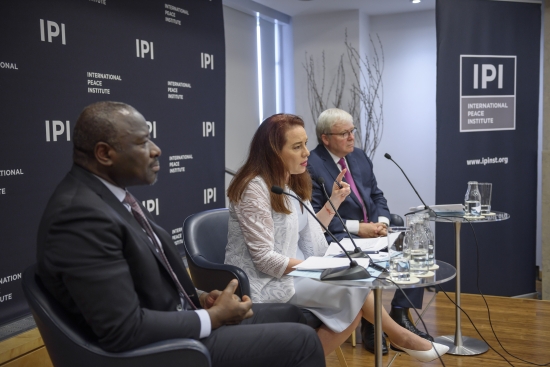Multilateral diplomacy is ‘irreplaceable’ despite tensions – IPI panel
Multilateral nuclear arms control agreements such as the Comprehensive Nuclear-Test-Ban Treaty (CTBT) are crucial and need to be strengthened despite bilateral tensions and an apparent erosion of trust in multilateral diplomacy, prominent panelists argued in a discussion at the International Peace Institute in New York.
Former Australian Prime Minister Kevin Rudd moderated the panel, entitled, “Picking Up the Pieces in a Fractured World: Rebuilding Trust in Multilateralism for Peace and Security,” as world leaders gathered in New York on 23 September for the opening of the United Nations 74th General Assembly.
Multilateral nuclear arms control agreements such as the Comprehensive Nuclear-Test-Ban Treaty (CTBT) are crucial and need to be strengthened despite bilateral tensions and an apparent erosion of trust in multilateral diplomacy, prominent panelists argued in a discussion at the International Peace Institute in New York.
Former Australian Prime Minister Kevin Rudd moderated the panel, entitled, “Picking Up the Pieces in a Fractured World: Rebuilding Trust in Multilateralism for Peace and Security,” as world leaders gathered in New York on 23 September for the opening of the United Nations 74th General Assembly.
Former Australian Prime Minister Kevin Rudd moderated the panel, entitled, “Picking Up the Pieces in a Fractured World: Rebuilding Trust in Multilateralism for Peace and Security,” as world leaders gathered in New York on 23 September for the opening of the United Nations 74th General Assembly.
“Multilateralism is one of those words the international diplomatic community has invented which baffles practically everybody else in the world,” Rudd said. “So, what is it in reality? It's an active decision to work together, across all countries, corporations and peoples, to reach common solutions to common problems which everybody can live with.”
Panelists were particularly concerned about signs of mistrust in agreements on nuclear disarmament.
Panelists were particularly concerned about signs of mistrust in agreements on nuclear disarmament.
“I think that we have to acknowledge that we have seen some tensions between nuclear states. And that is of course worrisome,” said María Fernanda Espinosa, who recently completed her term as President of the United Nations 73rd General Assembly.
“We really need to bring society together to understand why multilateralism is irreplaceable, that everything that we are facing today, starting with a climate crisis, violent extremism, terrorism, arms race, the nuclear threat, everything requires collective action and global cooperation.”
“We really need to bring society together to understand why multilateralism is irreplaceable, that everything that we are facing today, starting with a climate crisis, violent extremism, terrorism, arms race, the nuclear threat, everything requires collective action and global cooperation.”
Lassina Zerbo, the Executive Secretary of the Comprehensive Nuclear-Test-Ban Treaty Organization (CTBTO), said issues such as arms control, nonproliferation and disarmament had reached a critical point, “where people wonder whether we will start another arms race, or we will work towards achieving a world free from nuclear weapons.”
But in spite of current uncertainties, Zerbo believes a new generation of leadership is beginning to shape global diplomacy, exemplified by the climate protests led by Swedish 16-year-old Greta Thunberg.
But in spite of current uncertainties, Zerbo believes a new generation of leadership is beginning to shape global diplomacy, exemplified by the climate protests led by Swedish 16-year-old Greta Thunberg.
“We have four million young people who are rallying now and saying ‘No’ to what we've been doing, and asking us to act because they want a better world for themselves,” he said. “And that's the difference today. It's done for climate change. It should be done for arms control and non-proliferation and any other global issue that could help us make this world a better place.”
All the panelists encouraged all countries to sign and ratify the CTBT. Before the treaty was opened for signing in 1996, over 2,000 nuclear tests were conducted worldwide; since then, only 10.
“The best way to stop more states from becoming nuclear weapon states is to make sure we have stopped nuclear testing right across the world,” Rudd said. “So therefore this particular treaty, the Comprehensive Test-Ban Treaty, is absolutely essential. It's the fundamental precondition for preventing further nuclear proliferation.”
View the whole discussion on the International Peace Institute website.
All the panelists encouraged all countries to sign and ratify the CTBT. Before the treaty was opened for signing in 1996, over 2,000 nuclear tests were conducted worldwide; since then, only 10.
“The best way to stop more states from becoming nuclear weapon states is to make sure we have stopped nuclear testing right across the world,” Rudd said. “So therefore this particular treaty, the Comprehensive Test-Ban Treaty, is absolutely essential. It's the fundamental precondition for preventing further nuclear proliferation.”
View the whole discussion on the International Peace Institute website.
25 Sep 2019
